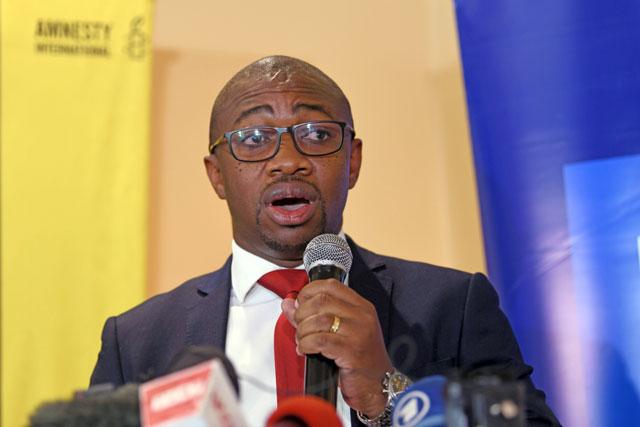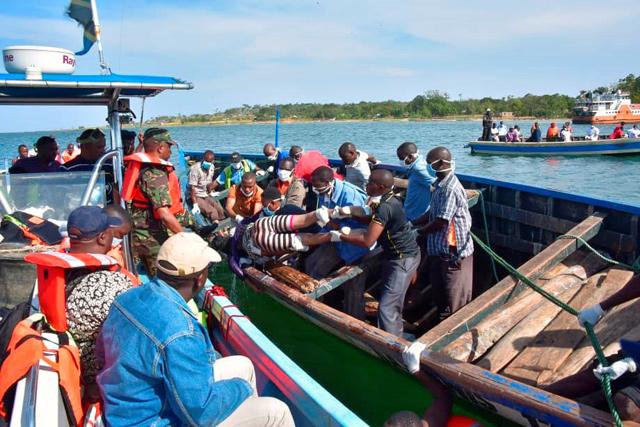You are here
Tanzania backsliding on freedoms under Magufuli — Amnesty, HRW
By AFP - Oct 28,2019 - Last updated at Oct 28,2019

Roland Ebole, a researcher at Amnesty International, speaks during the release of a new report on threats to independent media and civil society in Tanzania, in Nairobi, on Monday (AFP photo)
NAIROBI — President John Magufuli has presided over a crackdown on media and civil society in Tanzania that has seriously undermined democratic freedoms as the country approaches elections, global rights groups said on Monday.
Amnesty International and Human Rights Watch (HRW) said Tanzania was backsliding under Magufuli, whose administration has been accused of jailing journalists, kidnapping activists and assaulting political opponents.
Magufuli's rule, which enters its fifth year next month, has been marked by an attack on free speech previously unseen in Tanzania, critics say, unravelling progress made by a country once rosily viewed in the region.
"Tanzania's really going down, very fast," Roland Ebole, a researcher with Amnesty International, told AFP in Nairobi.
"We have not seen this level of harassment, intimidation, or shutdown of media houses. It's a new for Tanzania."
Magufuli came to power as a corruption-fighting "man of the people" but has since been criticised for his authoritarian leadership style.
In two separate reports released on Monday, HRW and Amnesty detailed how Magufuli's administration had enforced his diktats using draconian laws.
Newspapers have been shut down, live broadcasts of parliament switched off and critics jailed using cybercrime laws.
In a recent case, journalist Erick Kabendera was held for questioning over his citizenship, then threatened with sedition, before being charged with organised crime and financial offences.
He has been in and out of court since his arrest in July and is suffering poor health.
In another high-profile case, Azory Gwanda, a Tanzanian journalist and government critic who disappeared in 2017, has never been found.
In May, high-profile dissident Mdude Nyagali was snatched by four gunmen and dumped, seriously beaten, in a village two days later.
HRW and Amnesty — which unveiled their reports in Nairobi because permission was not possible in Tanzania — said civil society workers, opposition activists and others were too scared to speak openly to their researchers.
"This is very significant, considering you're talking about a country that really was free. A country where people would say everything, and anything, they wanted to say," Ebole said.
It comes as Tanzania faces local elections later this year and national polls in 2020. Magufuli, nicknamed "The Bulldozer", is expected to run again.
The effective silencing of media and critics "does not create a good environment for free and fair elections", HRW researcher Oryem Nyeko told reporters.
The international community has taken notice. The US and UK have both voiced concern over the "steady erosion of due process" in Tanzania, pointing to Kabendera's treatment as a case in point.
Reporters Without Borders, a watchdog, this year labelled Magufuli a "press freedom predator" and dropped Tanzania 25 places on its annual press freedom index.
Related Articles
AMMAN — His Majesty King Abdullah and Russia's President Vladimir Putin on Thursday discussed the latest developments in the Middle Ea
AMMAN — His Majesty King Abdullah on Wednesday sent a cable of condolences to Tanzanian President John Joseph Magufuli, over the victims of
NAIROBI — The death toll from a crowded ferry capsizing in Lake Victoria rose sharply to 207 on Saturday, a Tanzanian minister said, as resc












